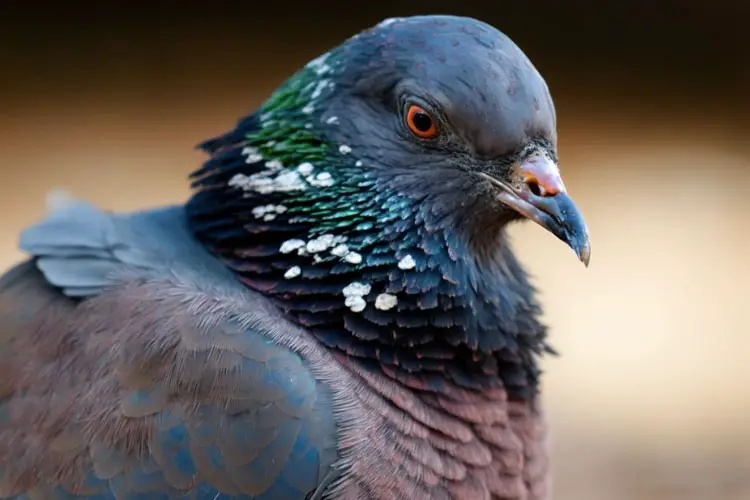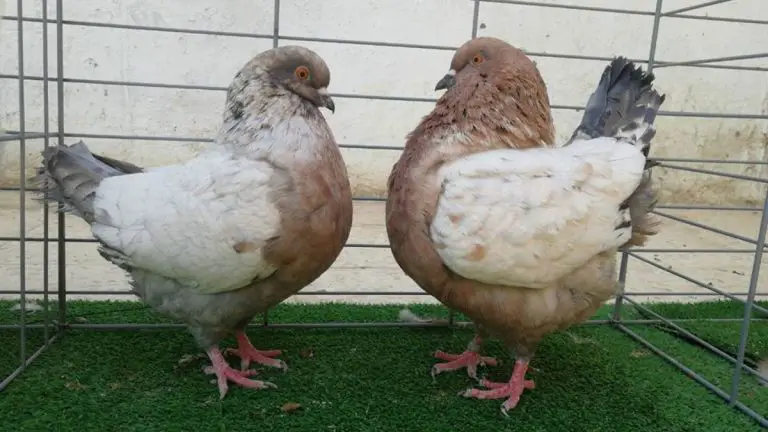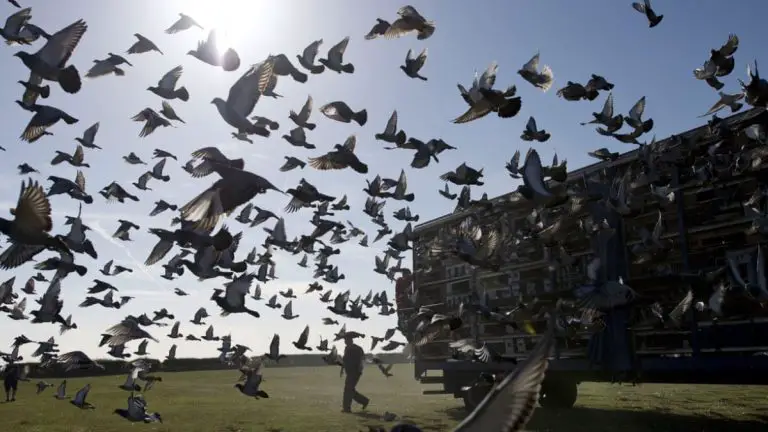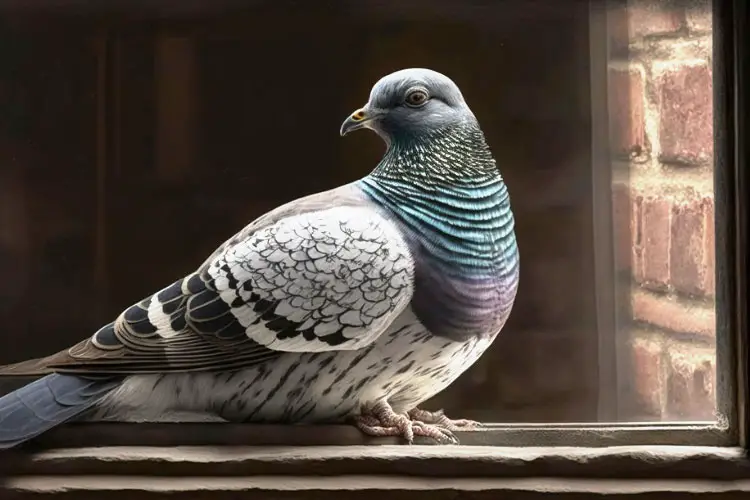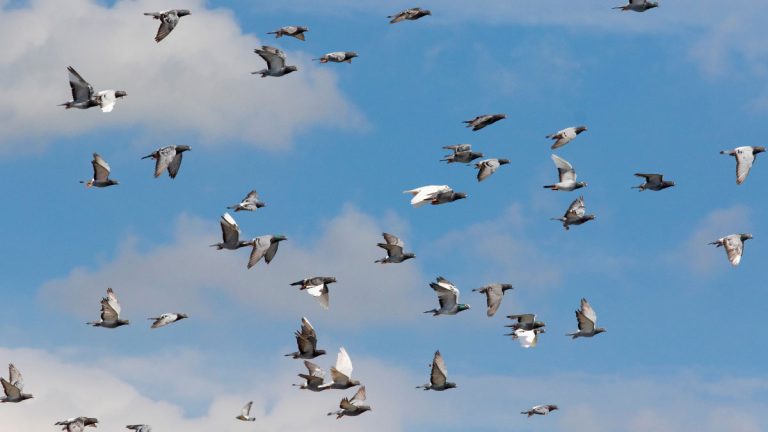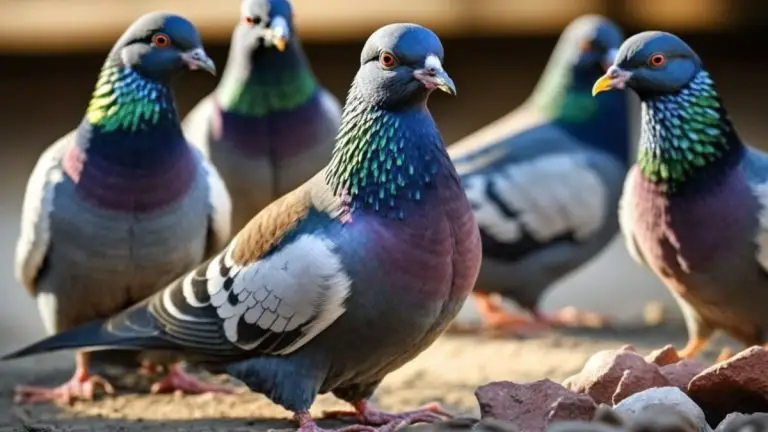Pigeon Dying Signs: Where Do They Go To Die?
Pigeons, like most birds, are victims of most avian diseases, and some end up costing their lives. The only chance any pigeon owner has is observing the signs early enough to get them treated.
But what are the signs of a dying pigeon? A dying pigeon will have unkempt, fluffed, and dirty feathers as it won’t preen as usual. Its eyes would be watery and unfocused, and the bird may struggle to breathe. When wild pigeons are unwell, they retreat to hiding, where they recover or die.
The article covers various signs of a dying pigeon that you can observe and get help with on time. Read on to learn more about where the wild pigeons go to die.
What Are the Signs of a Dying Pigeon?
The following are various signs of a dying Pigeon.
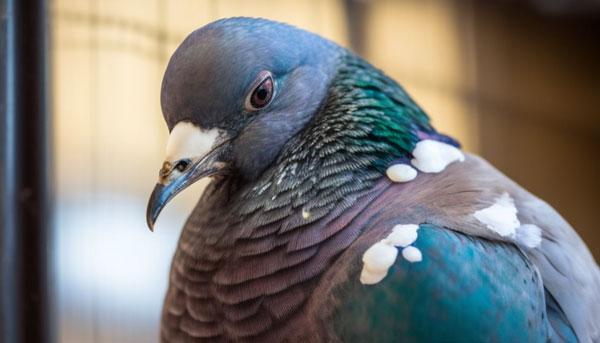
1. Feather Loss
Feathers are crucial to any bird as they keep the bird warm and are their source of transport. When the pigeon begins shedding feathers, it’s a strong sign that it’s unwell. Birds with parasite infections often shed their feathers, and if left untreated, they die.
2. Puffed Up Feathers
While puffing is common when a pigeon is cold, the bird should not stay puffed up every time. If the bird has an infection or fever, it is likely to keep puffing most of the time.
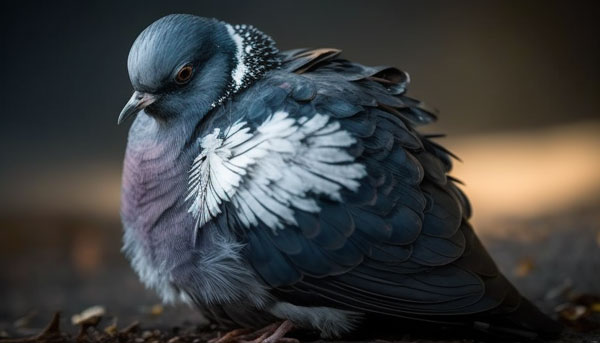
3. Dirty Feathers
Birds, including Pigeons, love preening their feathers and keeping them decent. If your pigeon feathers are unkempt and look dirty, the bird may be sick and unable to clean them.
4. Appetite Loss
A pigeon not feeding is among the earliest symptoms that your bird is unwell. The pigeon may become underweight, which you can tell if you feel breast bone.
5. Vomiting
If the pigeon is vomiting after feeding or drinking, it might also be suffering from a lethal condition. However, be sure the bird is not barfing, which resembles vomiting but with less struggle.
6. Drinking More or Less Than Usual
If the pigeon begins drinking more or less water, it might be unwell. A bird that has ingested toxins may drink a lot more than usual. The same scenario is also common if they develop kidney problems.
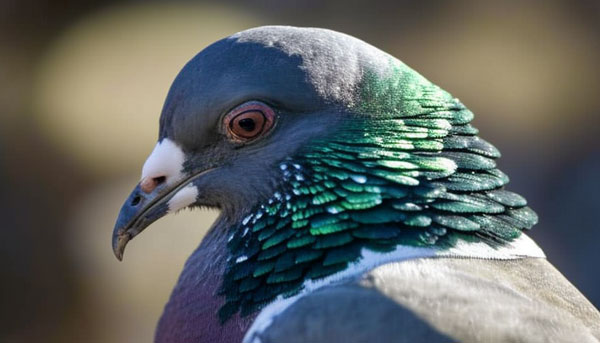
Drinking less is also dangerous as the bird risks dehydrating. Birds that are very ill will also take less.
7. Lethargy
An ailing pigeon about to die will remain perched most of the time. It will also seem to struggle to walk or stand.
8. Changed Droppings
Watery droppings may signify a fungal, parasitic, or bacterial infection with your pigeon, all of which are lethal. Cancer in the Gastrointestinal tract may cause the bird to have blood in its droppings.
9. Struggled Breathing
Labored breathing in your pigeon may signify a lethal respiratory disease. The bird may wheeze with clicking noises, and the tail may move up and down while it breathes.
10. Shaking
On its final days, the pigeon will shiver and shake a lot like it’s feeling cold. If the bird attempts to walk with the condition, it may fall and appear to have a seizure.
How Do You Help A Dying Pigeon Recover?
If you were lucky enough to spot the signs early and take the bird to the veterinarian, it might have a chance to live. However, during the recovery period, the bird may need your support.
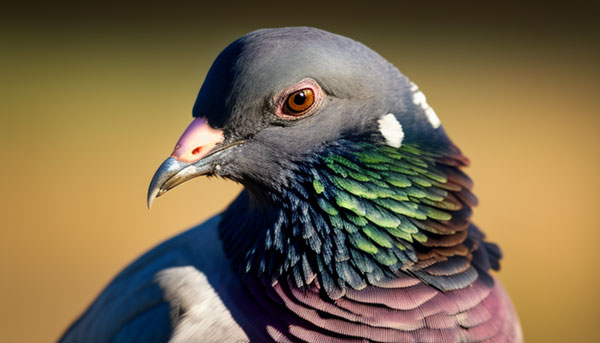
Some ways you can help your pigeon recover include
1. Isolate the sick pigeon
Isolation is a crucial step as it controls contamination to other healthier birds. Also, it reduces the risk of contracting more viruses that might worsen the sickness.
2. Provide Healthy Diets
The recovery periods involve the pigeon’s body building stronger muscles and tissues. They can only achieve this with a quality diet high in essential vitamins.
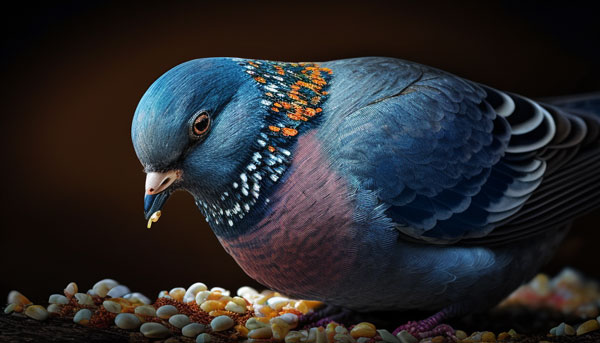
3. Supply Water
Water is a crucial nutrient for a recovering bird and is required in plenty. However, provide water after you have raised the temperatures in the room with the bird.
Where Do Pigeons Go to Die?
It’s rather unusual how pigeons flock to some urban places, but only a few are seen in their final resting place. Like other animals, it’s expected to see a few of them lying around dead, but that’s not the case. A few facts could be drawn behind this mystery.
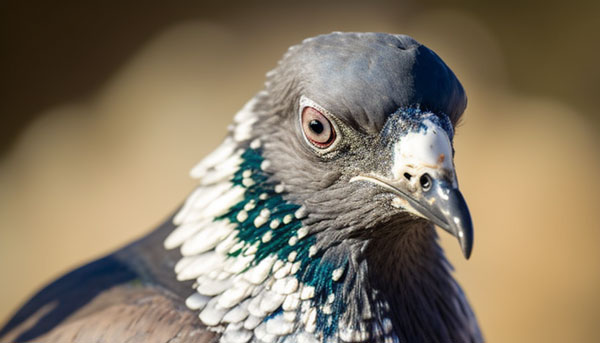
- Pigeons do not like being eaten by predators, whether alive or as carcasses when they die. So these birds retreat to a hiding place once they realize their health condition is worsening and they might die soon.
- The ailing bird will spend most of its final days in the place, probably hoping to recover. When they die, they decay quickly since most of their bones are hollow and filled with air. Hence, we hardly find their dead bodies around.
- This isolation habit of pigeons during the final days helps save people from the painful task of cleaning their carcasses. Thus, they also reduce the spreading of diseases their carcass may carry as they rot in city centers.
What Causes a Pigeon’s Death?
There are many causes of pigeon deaths, and old age is one of them. Some of the common causes include;
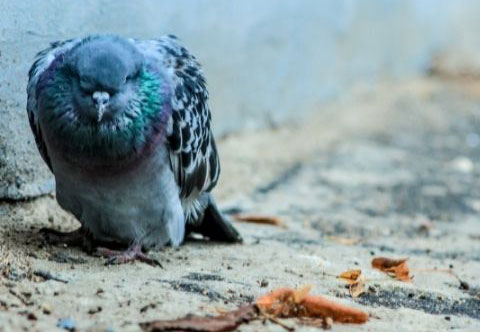
Injuries From Hunters
The bird may be a victim of a pellet gunshot which can break its foot or wing. If the bird is not much injured, it can succeed in flying to its hiding place to recover.
Their hiding place includes ledges on a high building, attics, and ventilation systems. Humans and most predators rarely visit these places, which makes them safe for the birds to hide.
Predators
The injured birds who don’t make it to a hiding place become easy targets to prey. Also, as they get slower with age, they’re easily isolated and preyed on by predators.
Falcons and sparrow hawks are some of the predators that prey on pigeons. Cats also eat pigeons, especially those that are injured or dead in the city spaces. With thousands of domesticated cats in towns, it may explain why no one gets a chance to see a dead pigeon.
Diseases
Diseases like Hexamitiasis, a parasitic Pigeon disease, are also responsible for pigeon deaths. Pigeons can get diseases from their food, water, or interaction with droppings.
If you’re interested in learning more about pigeon behavior and physiology, our articles on pigeon communication and vision can provide fascinating insights. Our article on why do pigeons coo explores the meaning behind this unique and complex form of communication. If you’re curious about whether pigeons can see at night, our article on can pigeons see at night delves into the science of pigeon vision and sheds light on this interesting question. With our articles, you can deepen your understanding of these fascinating birds and their behavior.FAQs
The section contains frequently asked questions about the pigeons’ dying signs, along with their answers.
Yes. Some viral diseases, like hepatic diseases, may cause a bird to die suddenly without showing symptoms. Also, if the bird suffered from an injury, it might die without signs. Be sure to attentively observe your birds since they may hide signs until too late.
Yes. Captive birds also isolate themselves when dying. If your pigeon stays isolated and doesn’t interact with other birds in the flock, it might be ailing. You can observe other signs to confirm the pet’s condition. However, take the bird to an avian vet as soon as you notice the isolation.
No. A pigeon standing still, especially during active hours. You should isolate the bird from the others and seek help from an avian vet immediately.
Bottom Line
Like all living things, pigeons eventually grow old, a time when they’re more susceptible to diseases. For domesticated pigeons, you can observe some signs and seek help from an avian vet. Once the pet is treated, you can help it recover by providing healthy foods.
Once a wild pigeon gets sick, it retreats to a hiding place where it spends some time before it dies. The unlucky few that don’t manage to fly to the hiding place are eaten by cats and hawks.
